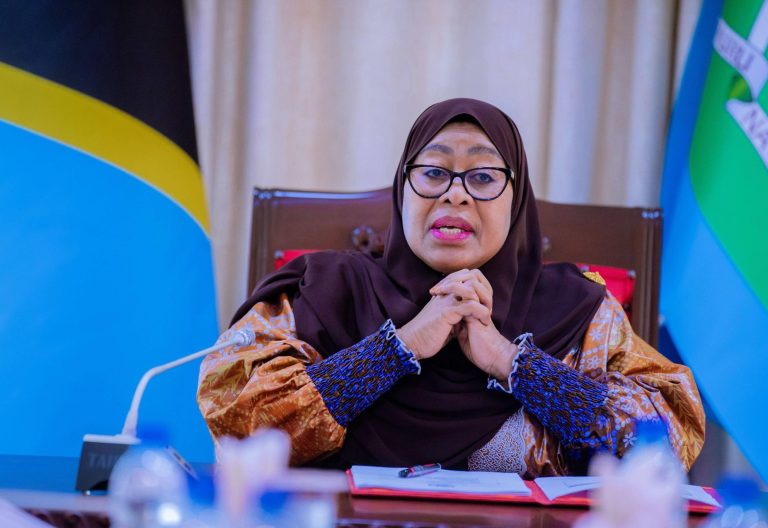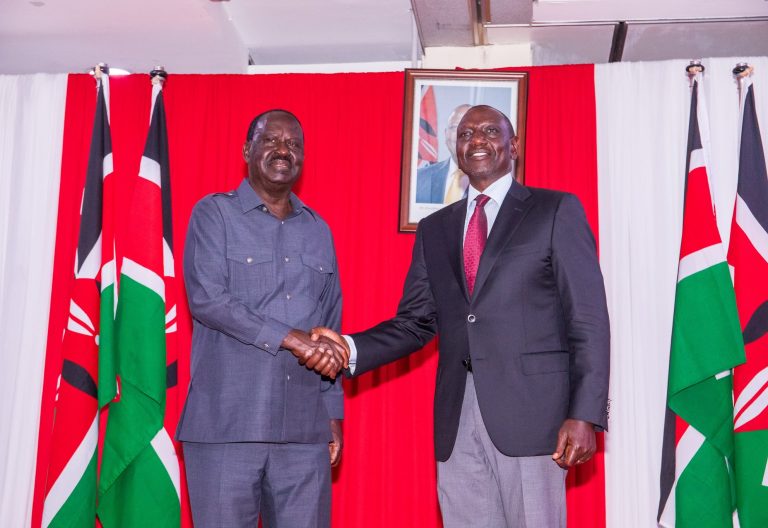Tanzania’s Suluhu is right, we in Kenya have bad manners

More than half of Kenya’s population was not there then. It should, however, not be lost on us that it was shameless corruption, belligerent conduct and overreaching attitude by the Kenyan political actors and business elite that gave a fillip to the collapse of the East African Community (EAC) in 1977.
A decade later, the EAC was revived through the unwavering commitment of the Kenyan President, the late Daniel Arap Moi, Tanzania’s Ali Hassan Mwinyi and Uganda’s Yoweri Museveni.
More than 30 years later, the now expanded EAC is again teetering on the verge of disintegration, with Kenya still posturing in the same manner as in 1977.
If sufficient precautions and tolerance are not applied by the key players, the regional bloc could hit a cul-de-sac one more time.
Unlike in 1977, Kenya does not have today the economic and other strategic advantages it had four decades ago.
At that time, the Port of Mombasa was the main gateway to the East African region via both rail and road transport and therefore Kenya could afford to bully its helpless neighbours and dictate terms to its favour. Which it did gleefully.
That is not the case today. The pendulum long changed course. Kenya is on a downward trend while its two neighbours are ascending steadily.
Uganda and Tanzania have been fighting corruption and striving to be economically afloat.
To the detriment of Kenya, the two countries have since developed alternative routes of transport for their goods and services and devised modern strategies attractive to both tourists and investors, with Kenya the loser each coming day.
The past three weeks have witnessed a see-saw of barbs and darts between some Kenyans and their Tanzanian counterparts, both in and outside the Government.
The unsavoury verbal and digital exchanges have caught the attention of the Heads of State from two countries as well as their Legislatures.
It all started three weeks ago when one of Kenya’s senior Opposition stalwarts, Martha Karua, who is a former Minister for Justice and now the leader of the National Liberation Party (NLP), was denied entry, together with two other compatriots, into Tanzania to observe the ongoing trial of Opposition leader Tundu Lissu of the Chama Cha Demokrasia na Mageuzi (Chadema).
The trio were flown back to Nairobi on the evening of the same day.
A day later, former Kenyan Chief Justice Dr. Willy Munywoki Mutunga and human rights activists Khalid Hussein and Hanifa Adan were similarly denied entry into Tanzania and flown back to their home country while activist Boniface Mwangi and his Ugandan counterpart Agather Atuhaire were detained for three days before being driven to and dumped at the common frontier after allegedly being tortured.
Those incidents sparked acerbic conversations between the Kenyan and Tanzanian senior government officials, parliamentarians, civil societies and keyboard warriors.
The warfare is still raging.
Tanzania’s President Samia Suluhu Hassan has not hidden her disgust for the unfolding developments.
An incensed Suluhu lambasted members of the Kenyan civil society and the activists intent on attending Lissu’s trial, terming them as rude, mannerless and indisciplined saboteurs who she declared would not be allowed in her country to destroy it the same way they had done to their own.
She asked all Tanzanians to always reject the “bad manners” from Kenya. She got unison support from Parliament and senior leadership of her ruling party, Chama Cha Mapinduzi (CCM).
On their part, Kenyans took to social media to hurl all manner of piercing brickbats and epithets, which did not amuse the Tanzanians at all.
The two sides are still bandying insolence at the moment, even after President William Ruto extended an apology to the people of Tanzania on Wednesday during the National Prayer Day at Safari Park Hotel in Nairobi.
The unhelpful exchange between the citizens of the two countries has piqued my curiosity. Unfortunately, this is a game in which Kenyans will lose with an egg on their faces.
It did not need to take President Suluhu to remind us that we have very bad manners. That is not a claim. It is a fact.
The Kenyan citizens have the worst manners within the seven-member EAC bloc. This is not an allegation. It is another truth.
Camouflaged as democracy, constitutional rights and freedom of expression, it is only in Kenya where you have people of all ages abusing others in extremely violent, if not provocative, language for the whole day.
Respect, decorum and common decency are wanting in Kenya. We do not need Suluhu to remind us of that. Even when she does, we need not resort to vulgarity and draining emotions. Instead, we should self-reflect right from personal to national levels.
The bad manners that the late revered first President of Tanzania, Mwalimu Julius Kambarage Nyerere and Apollo Milton Obote of Uganda, who co-founded the EAC with the late Kenyan President Mzee Jomo Kenyatta, abhorred in the 1970s are still thriving in Kenya today.
Young people in Kenya have no respect for elders. They hurl insults at adults for days on end. Church-goers have no respect for their ministering pastors. Our electronic and social media are awash with obscenities. Debate in our Parliament is absolutely crass.
It is only in Kenya where the citizens shamelessly abuse their President and Opposition leaders in the name of democracy and freedom of expression.
Abusing leadership and elders is deemed in Kenya as a heroic achievement that deserves reward.
Today, Kenya’s President William Ruto is publicly called Mwizi (thief) and Muuwaji (killer) by every Jack and Jill on the streets and in the bushes. Urchins in urban areas, kindergarten learners, pupils in primary schools and herdsboys upcountry call him so. Very unfortunate.
Ruto himself is every weekend calling his opponents Wapumbavu (idiots) and Wajinga (fools). Too unfortunate.
Retired President Uhuru Kenyatta got a share of those insults for the 10 years he served as Head of State.
Opposition leader Raila Odinga has received one too many of them. That is not right. President Suluhu is not wrong in referring to us in the manner that she did. She was very right. Just as Nyerere was in 1977.
This has to stop. Sooner, rather than later. The poor state of Kenya’s economy cannot allow its leadership and citizens to sleep at the switch.
We are staring at a social upheaval. Both the Government and the Opposition, as well as the religious community and other sectors in our society, have to keep their eyes on the ball to ensure we avert the catastrophe.
We in Kenya have a responsibility to safeguard integration and stability in our region. This, we must do by first admitting that we have social, political and economic challenges aplenty, and all of which we must be ready to confront collectively so as to solve them.
Leaders of political parties have a greater responsibility in arresting this menace, for they are its genesis and prime perpetrators.
Exporting bad manners to our neighbours does not add value to our cherished constitutional rights. We have serious economic issues to tackle. Let us respect our neighbours and their sets of laws just as we expect them to respect our democracy and constitutional rights.
At no time in Kenya has sanity been in such great demand as now. Every shade of Kenyan leader has a cardinal duty to push for peace and cohesion in Kenya.
One such way of doing so is to respect our neighbours as they are, not as we want them to be.
The long-practised politics of hate, insolence and ethnic bigotry have not taken Kenya forward. Tossing the vices beyond our borders is even worse. That drags us into a dark and painful past from which no one gains.
Respect for one another, their religions, nationalities, tribes, cultural heritage, opinions, political parties and freedoms devoid of rancour and incitement is a democratic cloth we all must be ready and willing to wear at all times.
Let us be guided by sobriety at all times. As it has been said times without a number, Kenya belongs to all of us.
We must safeguard it together. Each one of us stands to lose in the face of national turmoil. None of us should be prepared to embrace or promote mayhem within and outside Kenya.
If anything, there is nothing wrong with borrowing that which is good from our neighbours. We can borrow integrity from Tanzanians as well as the distaste for, and fight against, corruption, in addition to embracing decorum, courtesy and respect.
That is not a bad idea, after all.
All Kenyans, regardless of their duty stations in life, have a sacrosanct responsibility – and must strive – to ensure that the country treads on a peaceful course. With neighbours too. At all times.
The author is the Revise Editor, People Daily newspaper















